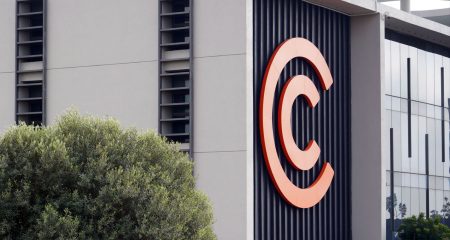
South Africa’s first alternative exchange, ZAR X, made its debut on Monday with the listing of agribusiness Senwes and its holding company Senwes Beleggings (Senwesbel), which marked the disruption of a more than 50-year long monopoly enjoyed by the JSE.
ZAR X settled and cleared the first purchase of 100 Senwes shares at R10,50/share in 10 seconds through its platform, which would normally take the JSE four days, says CEO Etienne Nel.
ZAR X uses a settlement cycle called T+0, which settles trades in real time, which is “in line with global best practice” — while the JSE implemented a settlement cycle known as T+3 (trade plus three days) in 2016, which settles trades in four days.
“When you get into a ZAR X platform, the buyer is real and has money in their account. The seller also has shares in their account. The minute a [buy and sell] match happens, a trade then happens instantaneously and faster,” Nel said.
Unlike the JSE and global exchanges, ZAR X’s platform doesn’t facilitate short-selling, a practice of selling a stock that the seller doesn’t own. This is in order to reduce systemic risk and create liquidity for companies, says Nel.
“Investors can’t sell shares that they don’t own and get them post a sale event. In our environment, you need to do all the admin beforehand and that’s how we get the share settlement.”
Nel didn’t expect large volume trades on Monday as share trades depend on the underlying companies listed (only Senwes and Senwesbel in this case). For example, there are restrictions on trading Senwesbel shares, including that shareholders must be bona fide farmers — meaning that the investor universe and volumes traded for Senwesbel are smaller compared with that of Senwes.
Senwes, which is 52% owned by Senwesbel, is a provider of white maize across the country and stores 25% of South Africa’s grain output. The 108-year-old company focuses on precision farming services, marketing, input supply, financial services, equipment, storage and grain handling with its subsidiaries being in joint ventures with companies including Imperial Logistics, Hinterland, Legendary Retail Brands WesBank and Afgri.
It grew its revenue in the first half of 2017 to R5,7bn compared to R4,8bn in the same period in 2016, while headline earnings per share grew to 57,4c from 53,9c. Senwes has more than 180m shares issued, with the second biggest shareholder being Grindrod Trading (which owns a 20,6% stake) and the public (owning 7,2%).
Senwes was forced to move from a previous over-the-counter (OTC) platform into a new exchange after the Financial Services Board issued a directive that put a stop to unlicensed exchanges — extending to OTC platforms.
In the medium to long term, Senwes is looking to raise capital to fund domestic and offshore growth opportunities. Says Senwes CEO Francois Strydom: “Locally we are the only company to follow this joint venture route, which is a consolidation strategy worldwide. South Africa hasn’t followed the consolidation and there are many opportunities… We are also looking at risk-adjusted opportunities in certain parts of Europe, Australia and New Zealand.”
Early in February, the FSB Appeal Board dismissed the joint appeals of alternative stock exchange 4 Africa Exchange and the JSE, which were against the granting of an exchange licence to ZAR X. This paved the way for ZAR X to go live with its exchange.
Nel says ZAR X has five additional companies, with a minimum market capitalisation of R200m, to list in its pipeline. On how many more listings does ZAR X need to be sustainable, Nel says: “It depends on the underlying listed company. The focus for ZAR X is to list quality companies that will trade effectively. We could do a R10bn-R15bn listing and it has huge amounts of liquidity for us.”
There have been two other applications for licensed exchanges with the FSB in 2016 including AX2 and YPN Exchange.
- This article was originally published on Moneyweb and is used here with permission




